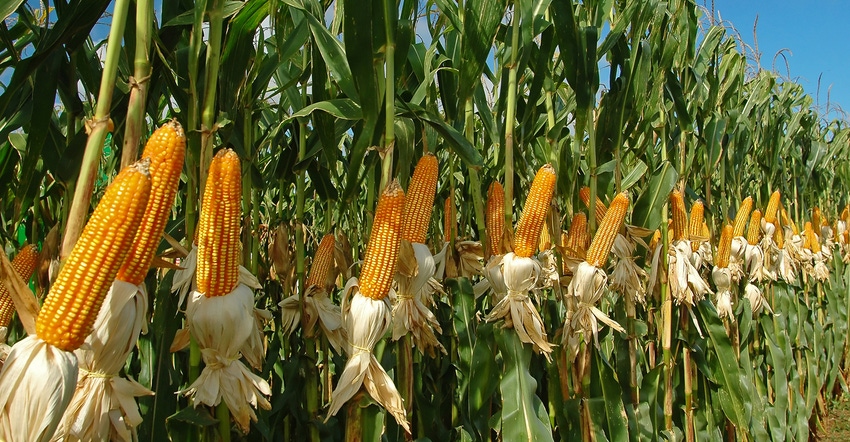
Syngenta in early December announced a partnership with Green Plains Inc. to expand that ethanol producer’s use of Enogen corn enzyme technology across its 1.5 billion-gallon production platform. This will add to Syngenta’s Enogen footprint, which includes more than 30 U.S. plants with a combined capacity of over 3 billion gallons.
Green Plains is one of the largest owners of ethanol production facilities in the world, purchasing more than 500 million bushels of corn annually. Using Enogen corn as a portion of the feedstock enables alpha amylase enzyme to be delivered directly in the grain, eliminating the need to add a liquid form of the enzyme in the ethanol production process. Also, having the alpha amylase enzyme in the corn kernel significantly reduces the viscosity of the corn mash.
Increases ethanol yield, decreases processing cost
Syngenta’s marketing agreement with Green Plains enables farmers in a growing number of communities to serve as enzyme suppliers to the ethanol industry.
Green Plains President Todd Becker says the opportunity to enhance production and invest locally is a key benefit of using Enogen corn. “We’ve been using Enogen corn at a number of our locations the past several years and have noted significant benefits, including enhanced ethanol yield and reduced energy costs in corn processing,” he says. “Combining our focus to buy more corn directly from farmers and purchasing alpha amylase locally in the form of high-quality grain for all of our plants, we believe Enogen will create value for our shareholders, growers and communities where we do business.”
With Enogen, enzyme already in kernel
Enogen corn enzyme technology is an in-seed innovation available exclusively from Syngenta and features the first biotech corn output trait designed to enhance ethanol production. Using modern biotechnology to deliver alpha amylase enzyme directly in the grain, Enogen corn eliminates the need to add liquid alpha amylase and creates a win-win-win scenario by adding value for ethanol plants, corn growers and rural communities.
Enogen is making dramatic gains not only in the field, but in ethanol plants as well, and is helping to fuel enzyme innovation, says Jeff Oestmann, head of Syngenta’s Enogen division. “Enogen is rapidly gaining popularity because of the value it delivers to ethanol producers and opportunity it provides corn growers to be enzyme suppliers for their local ethanol plants. Enogen corn enzyme technology creates increased profit potential for ethanol producers and corn growers while adding significant incremental value at the local level for communities that rely on their ethanol plant’s success.”
Farmers are enzyme suppliers to ethanol plant
Syngenta is committed to the success of the U.S. ethanol industry and to helping ethanol plants adopt the best enzyme strategy, Oestmann says. “We are proud to have made a significant investment to bring this game-changing technology to market to help make ethanol more sustainable and to help plants differentiate their offerings and support their local communities by keeping enzyme dollars local,” he adds.
Today, 97% of America’s motor fuel mix contains about 10% ethanol, and higher blends are increasingly available. These new consumer options have appeared, in part, due to the work of the ethanol industry in pushing for more options like E15 for consumers at the pump. Ethanol is helping America reduce its dependence on foreign oil and is helping create jobs that can’t be outsourced. Enogen not only helps keep enzyme dollars in local communities, it also supports creation of jobs in the United States.
Growers earn premium for delivering Enogen corn
The alpha amylase enzyme found in Enogen grain helps an ethanol plant significantly reduce the viscosity of its corn mash and eliminates the need to add a liquid form of the enzyme, Oestmann says. This breakthrough reduction can lead to unprecedented levels of solids loading, directly contributing to increased throughput and ethanol yield, as well as cost savings from reduced natural gas, electricity and water usage in the ethanol production process.
Farmers who grow Enogen corn are eligible to earn an additional premium per Enogen bushel they sell to the ethanol plant. And numerous trials have shown that Enogen hybrids perform equal to or better than other high-performing corn hybrids. To inquire about incorporating Enogen into a dry grind ethanol plant, contact [email protected]. For information about Enogen corn hybrids, talk to a Golden Harvest or NK seed retailer or visit enogen.com.
About the Author(s)
You May Also Like




